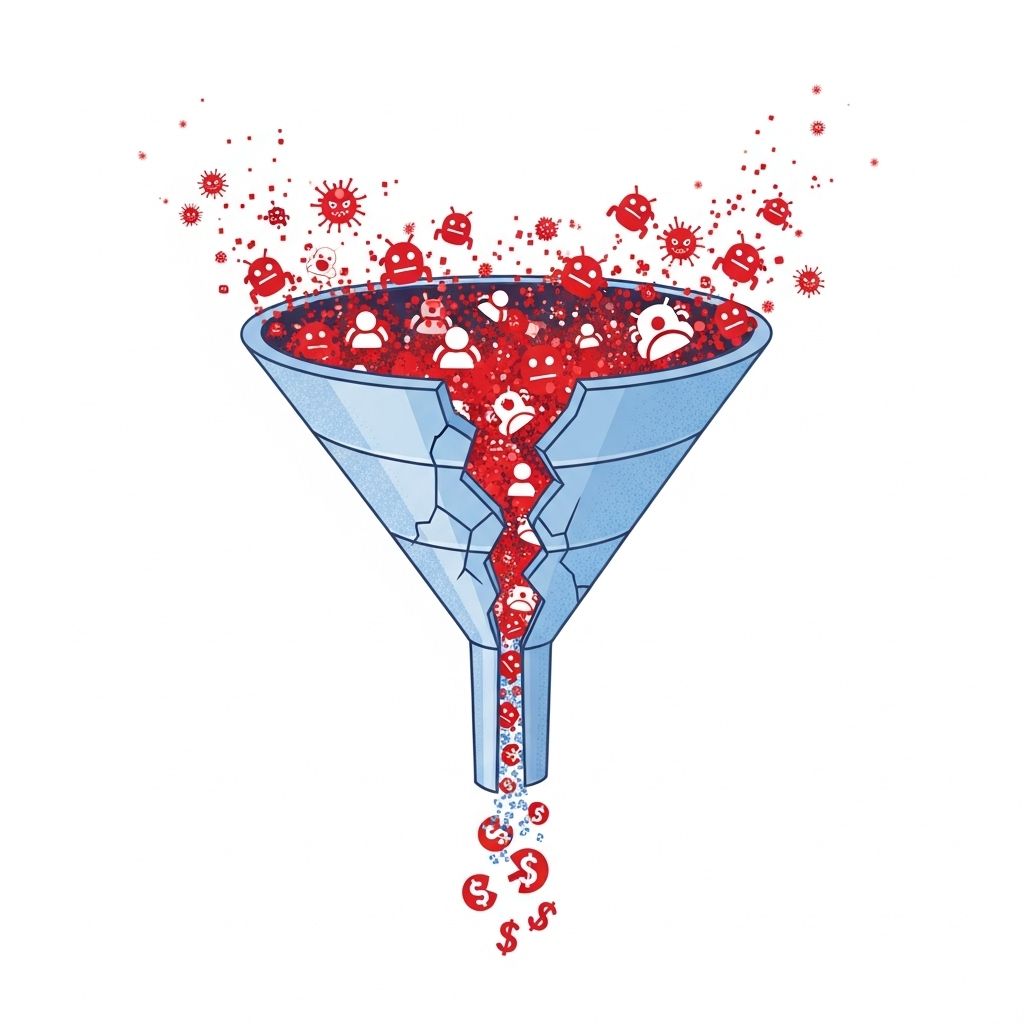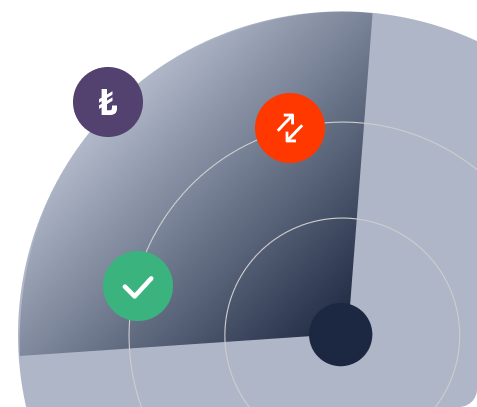Click fraud is a pervasive issue in online advertising, especially with pay-per-click (PPC) ads. This type of fraud, involving automated scripts or bots, aims to harm advertisers or increase expenses for competitors.
 Özgül Yavuz Kaddoura
Özgül Yavuz Kaddoura
What is Click Fraud and How to Protect?

Cost of Click Fraud
Calculating the true cost of ad fraud is not easy. Still, according to estimates, the global cost of digital ad fraud in 2021 was around $65 billion. Ad fraud is becoming increasingly sophisticated, with losses now comparable to the revenues of large companies or national GDP figures. Bot accounts make up approximately 18% of traffic in the digital marketing Some alarming stats about Google Ads Click fraud:
In year 2023, approximately 22% of all online advertising spending is lost due to advertising fraud.
30% of mobile ad spending goes to fraud
By 2028, estimated ad fraud losses will reach $172 billion.
Types of Click Fraud

To prevent ad click fraud, it is important to understand its types. Common types are as follows:
Malicious Click Fraud: This is often driven by intense industry rivalry. Competitors may deliberately engage in click fraud to exhaust your daily budget early in the day. By draining your funds, they remove your ads from the search results, allowing their own ads to take the top spot at a lower cost.
Bot Traffic: This is the most scalable one. Automated scripts ranging from simple browsers to sophisticated artificial intelligence interact with advertisements. Since these bots can now mimic mouse movements, scrolling behavior, and visit time, standard analyses often accept them as valid users.
Click Farms: These are physical operations typically located in underdeveloped or developing countries, where low-wage workers are hired to sit at dozens of phones or computers. These workers are paid to repeatedly click on ads. Since these clicks come from real people, they usually bypass basic filters and are not easy to detect.
Data Distortion Fraud This occurs when bots create fake impressions while gathering content or data without directly targeting ads, lowering your site's performance and distorting your data.
How to Prevent Click Fraud?

Here are actionable steps to combat click fraud effectively:
Use Specialized Click Fraud Prevention Software
Manual monitoring is impossible at scale. The most effective solution is specialized software designed to prevent ad click fraud. These tools sit between your ad network and your website, analyzing each visit with real-time bot traffic detection. They instantly block fake visits by checking thousands of data points with the help of such as device fingerprinting and behavioral data.
Improve Your Targeting
Effectively narrowing your target audience reduces your risk of exposure to click fraud.
IP Exclusion Lists
Blocking suspicious IP addresses is a fundamental form of defense. You can prevent them from seeing your ads by manually excluding the IP addresses you identify. However, sophisticated scammers use dynamic IPs, so protection based solely on manual lists is insufficient.
Choose Reliable Ad Networks
Larger networks are more capable of providing better ad fraud protection measures.
Get Professional Support for Audits and Refunds
Sometimes, software alone isn't enough. If you suspect you have been the victim of an attack, contacting experts such as ClickSambo is an important step. These types of services perform in-depth checks using advanced bot traffic detection technology to identify complex patterns.
They can help you compile the necessary evidence records to file refund claims for Google Ads click fraud. Recovering the budget spent on fake traffic may not be easy, but a professionally prepared data file significantly increases your chances of receiving a refund.
Recognizing Click Fraud
Detecting anomalies is the first and most important step in preventing click fraud. Here are some important warnings:
Repeated Clicks from Similar IPs: Non-converting clicks from the same IP or IP Blocks are a sign of click fraud.
Sudden Click Surge: Sudden traffic boosts with low conversions indicate a click fraud.
High Bounce Rates: Fraudulent visits are short and leading to immediate exits(0 second visits) and high bounce rates.
Performance Anomalies: Conversion drops or traffic inconsistencies often signal click fraud.
Geographic Anomalies: Traffic from some regions you don't target is a major red flag. Bot traffic detection systems should automatically identify these location discrepancies.

Effects of Click Fraud on Ads
Click fraud undermines ad performance and wastes resources. Key impacts include:
Wasted Ad Budget: Click fraud quickly drains budgets that should be going to real customers.
Low Conversion Rates: False clicks reduce genuine conversions, impacting ROI.
Campaign Ineffectiveness: Fraudulent traffic hampers campaign goals.
Corrupted Analytics: Fake engagements distort data, complicating performance analysis.

Get a clear view of your real ad performance.

Frequently asked questions
Warning indicators include a sudden spike in traffic with zero conversions and high bounce rates. Frequent hits coming from similar IP ranges often suggest that Bot Traffic is being used to exhaust your daily limits without reaching any real customers.
This type of activity leads to a rapid depletion of your Ad Budget, as you are forced to pay for engagements that have no commercial intent. This distortion in data makes it extremely difficult to optimize your bidding strategy and accurately measure your ROI.
Rivals may use Malicious Bots or hire Click Farms to repeatedly click your ads, aiming to drain your funds and remove your visibility. This sophisticated form of Ad Fraud often uses Automated Traffic to mimic human behavior, making it harder for standard filters to detect.
The best defense is to use specialized protection software that identifies and blocks fraudulent sources in real-time. By ensuring your ads are only seen by genuine users, you protect your marketing spend and maintain the integrity of your campaign data.
